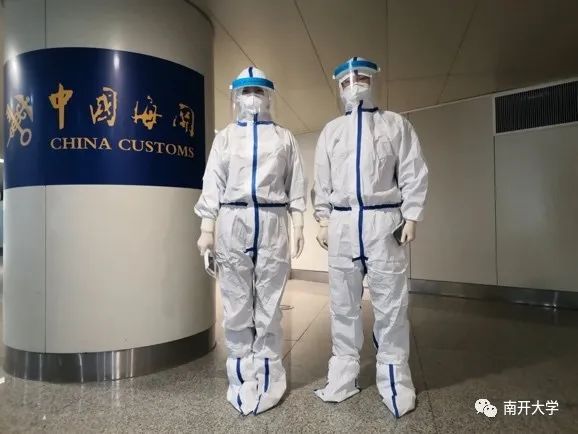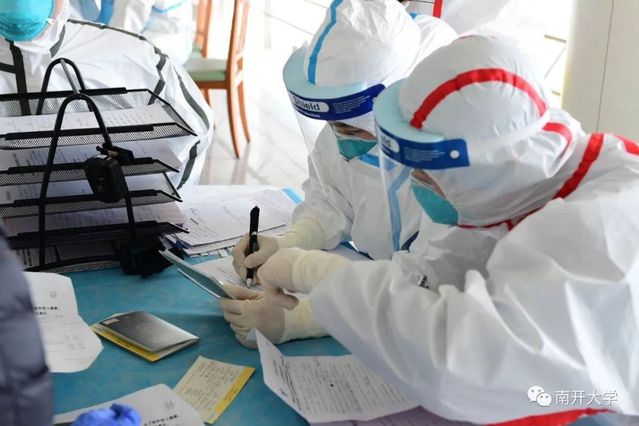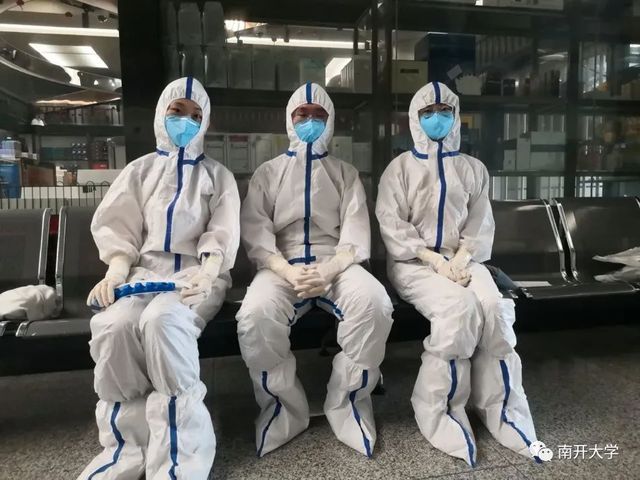Nankai University’s United Volunteer Translators Started to Work at the First Line for the Fighting against the Epidemic

These days, the COVID-19 epidemic quickly spread overseas. As one of the first entry points for international flights, Tianjin has recently received a number of confirmed cases from abroad. Nankai University set up a team of volunteering translators at the highest speed to fight against the epidemic. The first batch includes 25 members, who are teachers and students in different language majors from College of Foreign Languages. They are assisting relevant departments with their translation skills in works of customs clearance, personnel registration and diversion. The second batch will start to work soon.
United in 3 Hours
Learning about the demand of volunteering translators, the leadership of the University and the College took it as a prior task and quickly worked out a plan. The counsellors contacted students in Tianjin and appealed all students to make good preparation so as to turn Nankai’s spirit into practice. In only three hours, more than 80% students in Tianjin decided to join in the team without hesitation, which includes 10 students majoring in Italian, 7 in German, 9 in Russian and 1 in English. According to the urgent task requirements, the leadership of the College volunteered to join in the work themselves. A teacher and a student majoring in French both joined in the team and started to work on March 22. Eventually, the College selected 25 members (including four teachers) to work as the first batch, and the rest of students who applied are to be included in the second batch.

Starting to Work in 12 Hours
10 a.m. of March 22, the first batch of Nankai University’s volunteering translators started to work. They gathered at assigned points and went together to the Tianjin Binhai International Airport. After learning about the process, the staff at the airport instructed the members to wear protective suit and start to serve for the international flight from France. They endured the physical discomfort brought by wearing protective suit for the first time and the psychological pressure brought by their first-day of work, but they successfully got the job done: to transfer foreign personnel on the international flight of that day in five hours. They provided the most professional language services of Nankai people to assist the country’s anti-epidemic work, and also showed the world the efforts of China in the anti-epidemic work.
The teacher Mengying He translated for the foreign tourists on the flight from France to Beijing. “I translated for two groups today. I met a French kid and she specially drew a picture of the staff at the custom and me at work. It’s very touching.”

Be Ready 24 Hours a day
The main task for these volunteers is to provide multilingual translation services for foreign tourists and assist the front-line staff in epidemic prevention and control. Therefore, their service time is determined according to the flight conditions, that is to say, their voluntary services are mostly urgent and sudden.
With full support from all departments of the University, the service and guarantee work of accommodation, transportation, medical protection and so on were quickly completed for the volunteers, and the volunteer management training, psychological counseling and other work were carried out to provide the most solid support for the team.
The College of Foreign Languages quickly established Wechat groups for professional services and teachers instructed the volunteer students in the whole progress. Teachers and counsellors both provided pre-trainings and language assistance in the groups. “Hope all of you can overcome the difficulties. The University and the College will provide you the best guarantee.” Counsellors encouraged the students in the group. “These are two links of vocabulary that you may need during the work. In the pdf document are phrases about the COVID-19 epidemic. Please learn in your spare time.” Teachers sent many learning materials in the group too.
“Always be ready!” It is the answer and the promise made by Nankai University’s volunteering translators.
(Translated by Yuchen Shi, Edited by Davide Francolino and JianjingYun)









